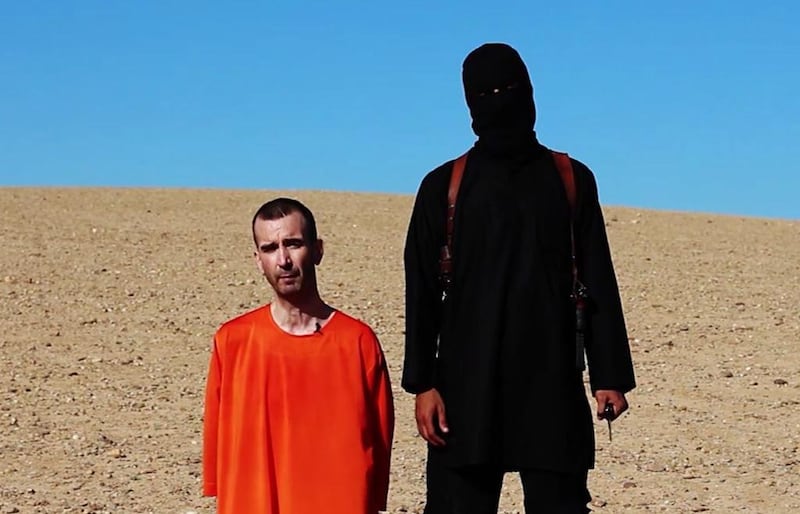Can the Muslim Brotherhood serve as an antidote to jihadist groups such as ISIL? Attempts to answer this question often turn into a blame game. Those who oppose the Brotherhood equate the group with violent extremists, while sympathisers portray it as an essentially non-violent movement that shoulders no blame for the rise of extremism.
Opponents of the group argue that the Brotherhood’s doctrine, as defined by its founder Hassan Al Banna, is no different from the slogans currently used by ISIL: the Quran is our constitution, jihad is our way and death in the path of God is our wish. They also rightly point out that the teachings of Brotherhood ideologue Sayyid Qutb have heavily influenced today’s jihadists. But its defenders maintain that the Brotherhood has evolved and adopted peaceful political means.
Political Islam in general serves as a tributary for extremism, for reasons that I will expand on later, and yet the Brotherhood does not equal ISIL. But that is an endless debate, and there is a more practical way to gauge whether the Brotherhood has served as an antidote to militant factions. To do so, let us look at Syria.
The Brotherhood has links with dozens of fighting factions inside Syria. According to multiple sources inside the country, fighting groups affiliated to the Brotherhood tend to be well-equipped. Some Syrians even suspect that the Brotherhood- affiliated groups stockpile weapons rather than use them against the regime or ISIL.
These factions have played little or no role in the fight against extremist groups, although some Brotherhood-financed groups in Aleppo and Idlib did fight ISIL as part of a broader rebel alliance.
Compare that with groups such as the secular-leaning Syrian Revolutionary Front or even Salafist groups such as Al Asala Wattanmiya, which initiated campaigns to expel ISIL from their areas. It is not an exaggeration to say that most of the groups that actively fought ISIL were driven by a thorough rejection of its ideology.
Other groups partly funded and influenced by the Brotherhood, such as Liwa Al Tawhid in Aleppo and Ajnad Al Sham near Damascus, have half-heartedly fought ISIL. For example, when the Northern Storm Brigade waged war against ISIL this time last year in the border town of Ezaz, there were expectations that Liwa Al Tawhid would join forces against ISIL after the Brigade publicly appealed for help. The Liwa did not join the fight, although it helped mediate a truce. Ajnad Al Sham only recently denounced ISIL publicly and pledged support for the Salafist Jaish Al Islam, which was one of the earliest groups to fight ISIL.
The Syrian Islamic Council (SIC) is another example. The 128-member council is dominated by the Brotherhood and was established with a stated mission to serve as a religious authority for all Sunnis in Syria. But since its formation in April, the council has not spoken out against ISIL atrocities.
And yet, when the United States announced that it would extend airstrikes in Syria, SIC suddenly found its voice: rejecting the international coalition against ISIL, echoing an earlier statement by the Brotherhood.
This is not the first time that Islamists in Syria have taken such a stance. When Washington designated Jabhat Al Nusra as a terrorist group last year, former opposition chief Moaz Al Khatib, who is also a member of SIC, rejected the designation and described the Al Qaeda affiliate as “our brothers”. There are plenty of examples of Islamists in Syria following this pattern, and it is not hard to discern a tendency among Islamist-leaning opposition figures to downplay the acts of ISIL.
It is hard to imagine a more urgent period in history for moderate Islamists to start serving as an antidote to extremists. But whether in power or struggling to gain power, the Brotherhood has often provided an environment for extremism to operate and flourish in – as the events in Syria over the past few years demonstrate so powerfully.
Hassan Hassan is an analyst with the Delma Institute in Abu Dhabi
On Twitter: @hxhassan





